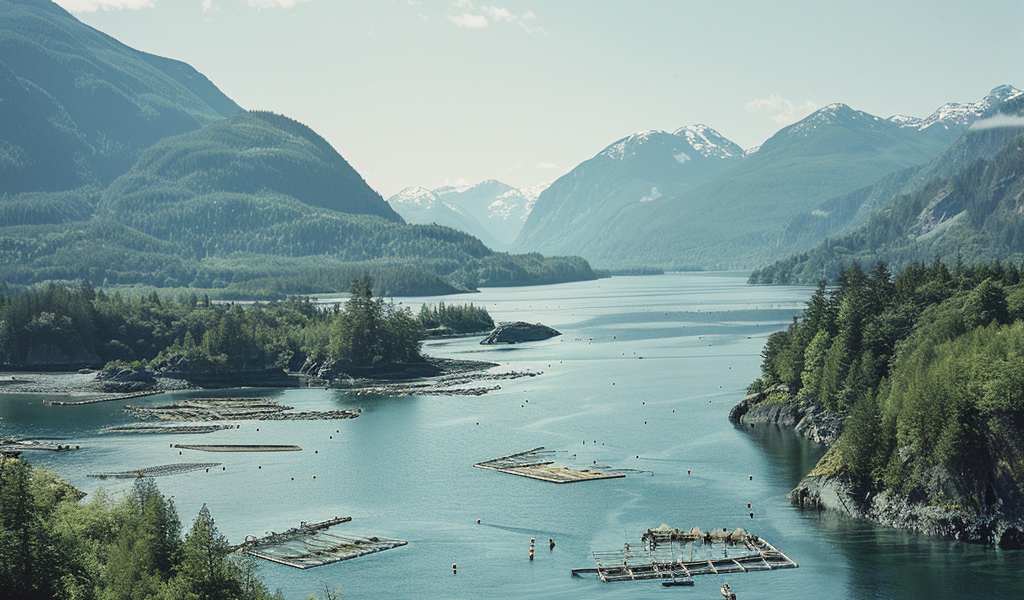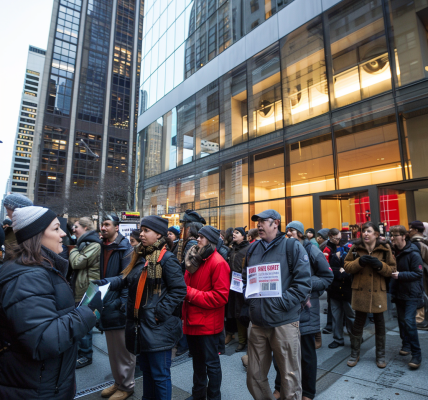In a significant move for environmental conservation, the Canadian government has announced plans to ban fish farms from British Columbia (B.C.) waters by 2029. This decision, hailed by many as a long-overdue measure, stems from years of research and debate surrounding the impact of fish farming on wild salmon populations.
The roots of this decision can be traced back to the 2012 Cohen Commission, which investigated the troubling decline of Sockeye Salmon in the Fraser River. The commission’s findings raised serious concerns about the potential harm caused by fish farms, particularly regarding the spread of sea lice and pathogens that could adversely affect wild fish stocks. The inquiry set a clear deadline: by 2020, fish farms needed to demonstrate that they were not harming wild salmon populations.
As the years went by, the debate intensified, with passionate advocates on both sides. One of the most prominent figures in this ongoing struggle has been biologist Alexandra Morton, who shifted her focus from studying whales to researching the effects of sea lice on salmon. Morton has been a vocal critic of fish farming practices, arguing that they pose a significant threat to wild salmon stocks.
In 2024, the announcement by federal Fisheries Minister Diane LeBoutillier to officially ban fish farms in B.C. waters was documented in an episode of the podcast series, The Salmon People. Morton expressed her relief, stating, “All of our hard work has now reached the regulators, the decision makers. We are seeing this industry destroy wild salmon stocks. Pathogens are pouring out of these farms and that has been denied for so long. And so there’s no winning or losing here, but it’s a big step.” This sentiment reflects the growing concern among environmentalists and scientists regarding the sustainability of fish farming practices.
However, the announcement has sparked a mixed reaction across various sectors. The fish farming industry, understandably, has expressed disappointment. Ivan Vindheim, CEO of Mowi, the world’s largest producer of farmed salmon, voiced his concerns during a summer 2024 investor presentation. He lamented that the decision appeared to prioritize emotional responses and political agendas over scientific evidence, stating, “It looks like emotion and political agendas have taken over facts and science in this case, which is really, really sad as there is so much at stake.” This highlights the ongoing tension between environmental conservation efforts and economic interests in the region.
Indigenous communities have also weighed in on the issue, with opinions varying widely. Dallas Smith, a representative of the Tlowitsis First Nation, raised concerns about potential job losses in remote communities that depend on fish farming for economic stability. This aspect of the debate underscores the complex interplay between environmental policies and economic livelihoods.
Conversely, not all Indigenous voices echo Smith’s concerns. Don Svanvik from the ‘Namgis First Nation believes that the transition away from ocean-based fish farming could be an opportunity for First Nations to take the lead in sustainable aquaculture practices. He cited the success of Kuterra, a land-based fish farm established by the ‘Namgis in 2012, which has demonstrated that this method can be both viable and environmentally friendly, albeit at a higher cost compared to traditional ocean-based farms. Svanvik envisions a future where Indigenous communities partner with the government to develop sustainable aquaculture infrastructure, stating, “My dream would be to send these guys [the Norwegian companies] home and have Canada and B.C. partnering with First Nations. It would be a real kick in the ass for the economy, building the infrastructure.”
The debate surrounding the ban on fish farms in B.C. is emblematic of broader discussions about environmental sustainability, economic development, and Indigenous rights. As the 2029 deadline approaches, stakeholders from various sectors will need to engage in constructive dialogue to find solutions that balance ecological health with economic needs.
The implications of this decision extend beyond just the fishing industry; they resonate with the public’s growing awareness of environmental issues and the need for sustainable practices. As the conversation continues, it will be essential for policymakers, scientists, and community leaders to collaborate in creating a sustainable future for both the salmon populations and the communities that rely on them.





